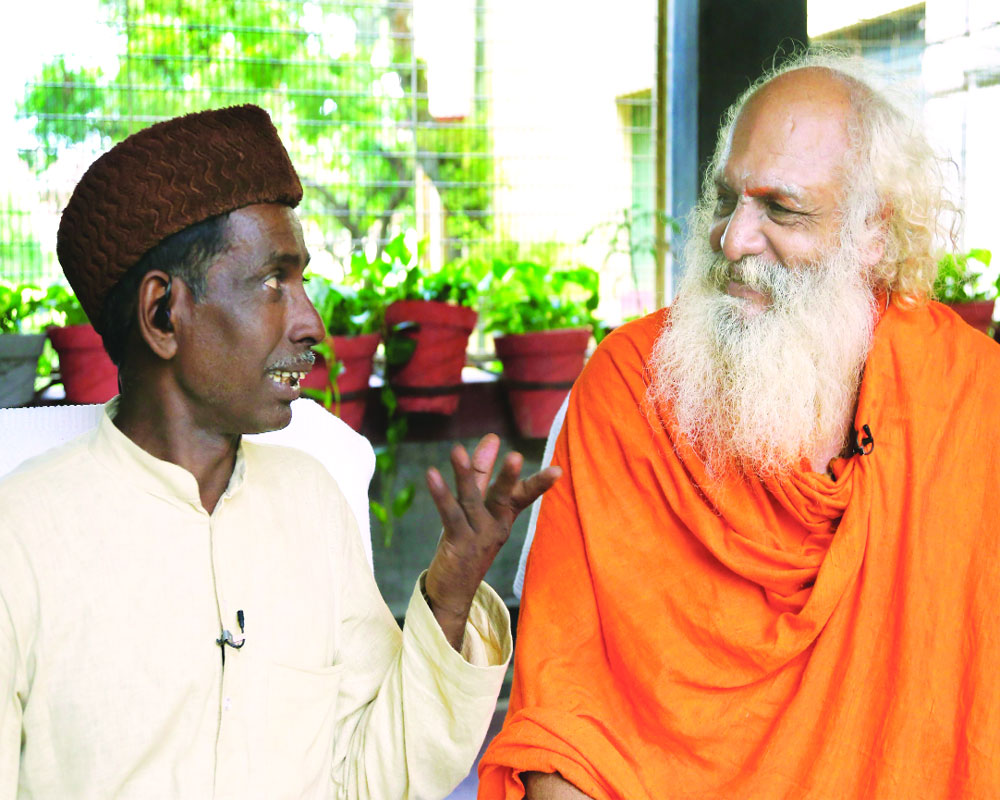The Supreme Court on Thursday paved the way for taking up the politically sensitive Ayodhya title suit without further delay by declining to refer to a Constitution Bench its 1994 judgment which held a “mosque is not an essential part of the practice of Islamâ€.
The apex court said now the civil suit on land dispute will be heard by a newly-constituted three-judge Bench from October 29 as Chief Justice Dipak Misra will retire on October 2. The Muslim parties now have the option of filing review petition.
The court’s ruling has come as a big boost for the protagonists of the Ram temple as also to the BJP, which hopes that the construction of the temple at Ayodhya before the next year’s general election could considerably brighten its electoral prospects. However, Muslim parties also welcomed the judgment in view of the certain clarifications made by the court about the applicability of the 1993 judgment in the present case. A three-judge Bench, headed by Chief Justice Dipak Misra, by a majority of 2:1 declined the plea of M Siddiq, one of the original litigants of the Ayodhya case who is no more and is being represented through his legal heir, that the matter be referred to a larger Bench. Justice Ashok Bhushan and SA Nazeer were other members of the Bench.
Justice Nazeer dissented with the majority view and said the question whether mosque was an essential part of the religion cannot be decided without a “detailed examination of the beliefs, tenets and practice of the faith†and favoured reconsideration of the issue to a larger Bench. The majority ruling said the observation about Islam and mosque in the celebrated Ismail Farooqi case was made in the limited context of “land acquisition†during the hearing of the Ayodhya case and made it clear it was not relevant for deciding the Ram Janmabhoomi-Babri Masjid title dispute.
“We again make it clear that questionable observations made in Ismail Faruqui’s case were made in context of land acquisition. Those observations were neither relevant for deciding the suits nor relevant for deciding these appeals,†said Justice Ashok Bhushan, who read out the judgment for himself and the CJI.
The Muslim parties see the SC clarification that made in the 1994 case were not relevant for deciding the suits as a positive takeaway from the verdict even as the RSS and the BJP have said that the court’s ruling has removed a big hurdle in early disposal of the Ram temple case.
Reacting to the verdict, Khaliq Ahmad Khan, the nominee of Maulana Mahfuzur Rahman — one of the litigants in the title suit, said, “During the hearing on the title suit in the Supreme Court, the other side always quoted the 1994 judgment that mosque is not an integral part of Islam. Now the court has made it clear that the 1994 judgment was related to the land acquisition...And that it has no connection with the title suit. We have achieved our goal as the Supreme Court will hear only the title suit.â€
Iqbaal Ansari, another litigant from the Sunni Central Waqf Board, welcomed the verdict and said, “The Supreme Court has made it clear that the case will be heard on merits, on the base of the claims of land ownership... And not on religious beliefs as the high court has done.â€
He said they were “fighting the case for Babri land on the basis of revenue recordsâ€. “Our claim is that there are no historical facts that any temple was demolished and Babri Masjid was built there,†he added.
The issue whether mosque is integral to Islam had cropped up when a three-judge Bench headed by CJI Misra was hearing a batch of appeals filed against the Allahabad High Court’s 2010 verdict by which the disputed land on the Ram Janmabhoomi-Babri Masjid area was divided into three parts.
The three-judge High Court Bench, in a 2:1 majority ruling, had ordered that the 2.77 acres of land be partitioned equally among three parties — the Sunni Waqf Board, the Nirmohi Akhara and Ram Lalla.
“In view of our foregoing discussions, we are of the considered opinion that no case has been made out to refer the Constitution Bench judgment of this court in Ismail Faruqui case for reconsideration,†Justice Bhushan said.
The 1994 verdict had said: “A mosque is not an essential part of the practice of the religion of Islam and namaz (prayer) by Muslims can be offered anywhere, even in open.â€
Justice Nazeer said the questionable observation of 1994 verdict had permeated into the Allahabad High Court’s decision in the land dispute case. In this context, he also highlighted the observations of the High Court Judge SA Khan that mosque is not integral to Islam.
Reacting to the SWC verdict, senior AIMPLB member Zafaryab Jilani said, “We honour the court order and see some positive movement regarding the Ayodhya case.†Another AIMPLB member Khalid Rashid Farangi Mahali said, “We respect the court verdict.â€
Mahali said, “Two positive things have come from this verdict. First, the Ayodhya matter will not be heard on the basis of faith and will be heard as a title suit.â€
Second, he said, the 1994 observation by court “will not make an impact†on the case. “We hope that the final hearing of Ayodhya will be completed soon. The Ayodhya hearing should not be linked with the elections,†he said, referring to next year’s Lok Sabha polls.


























